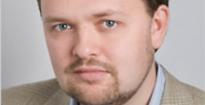Douthat: Islam Faces Unique Challenges in America
 In his column for the New York Times, Ross Douthat explores the complicated challenged facing America as it tries to integrate Muslims into its society:
In his column for the New York Times, Ross Douthat explores the complicated challenged facing America as it tries to integrate Muslims into its society:
There’s an America where it doesn’t matter what language you speak, what god you worship, or how deep your New World roots run. An America where allegiance to the Constitution trumps ethnic differences, language barriers and religious divides. An America where the newest arrival to our shores is no less American than the ever-so-great granddaughter of the Pilgrims.
But there’s another America as well, one that understands itself as a distinctive culture, rather than just a set of political propositions. This America speaks English, not Spanish or Chinese or Arabic. It looks back to a particular religious heritage: Protestantism originally, and then a Judeo-Christian consensus that accommodated Jews and Catholics as well. It draws its social norms from the mores of the Anglo-Saxon diaspora — and it expects new arrivals to assimilate themselves to these norms, and quickly.
These two understandings of America, one constitutional and one cultural, have been in tension throughout our history. And they’re in tension again this summer, in the controversy over the Islamic mosque and cultural center scheduled to go up two blocks from ground zero.
...
This is typical of how these debates usually play out. The first America tends to make the finer-sounding speeches, and the second America often strikes cruder, more xenophobic notes. The first America welcomed the poor, the tired, the huddled masses; the second America demanded that they change their names and drop their native languages, and often threw up hurdles to stop them coming altogether. The first America celebrated religious liberty; the second America persecuted Mormons and discriminated against Catholics.
But both understandings of this country have real wisdom to offer, and both have been necessary to the American experiment’s success. During the great waves of 19th-century immigration, the insistence that new arrivals adapt to Anglo-Saxon culture — and the threat of discrimination if they didn’t — was crucial to their swift assimilation. The post-1920s immigration restrictions were draconian in many ways, but they created time for persistent ethnic divisions to melt into a general unhyphenated Americanism.
...
Too often, American Muslim institutions have turned out to be entangled with ideas and groups that most Americans rightly consider beyond the pale. Too often, American Muslim leaders strike ambiguous notes when asked to disassociate themselves completely from illiberal causes.
By global standards, Rauf may be the model of a “moderate Muslim.” But global standards and American standards are different. For Muslim Americans to integrate fully into our national life, they’ll need leaders who don’t describe America as “an accessory to the crime” of 9/11 (as Rauf did shortly after the 2001 attacks), or duck questions about whether groups like Hamas count as terrorist organizations (as Rauf did in a radio interview in June). And they’ll need leaders whose antennas are sensitive enough to recognize that the quest for inter-religious dialogue is ill served by throwing up a high-profile mosque two blocks from the site of a mass murder committed in the name of Islam.
They’ll need leaders, in other words, who understand that while the ideals of the first America protect the e pluribus, it’s the demands the second America makes of new arrivals that help create the unum.
Click here to read more.

